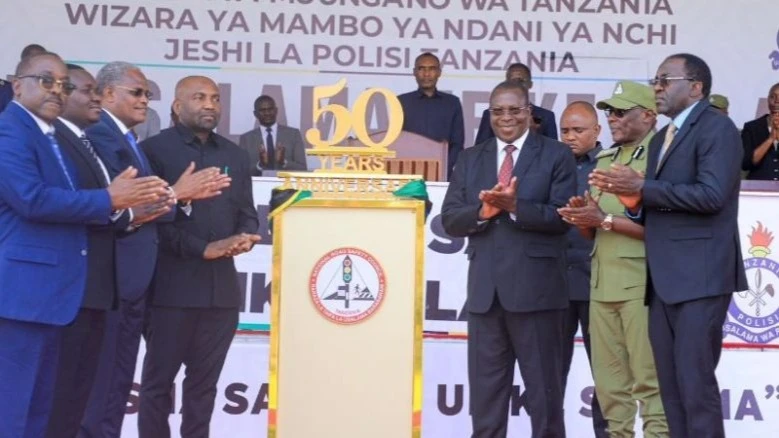Controlled reckless driving will reduce fatal road accidents

ROAD accidents contribute significantly to fatalities in the country, similar to other causes like natural disasters, diseases, and warfare. However, while these other causes are often beyond human control, road accidents are largely driven by human errors, particularly careless driving.
In typical scenarios, the cause of death is recorded on a death certificate, determined by a medical doctor following an autopsy performed by a pathologist to confirm the cause.
While diseases and natural events account for the majority of deaths globally, accidents, suicides, and homicides also claim lives and generate fear and tension, particularly within affected families.
Globally, diseases account for over 90 percent of all deaths due to their natural occurrence and the challenge of accessing affordable healthcare, especially for low-income populations. The remaining 10 percent of deaths arise from other causes, including accidents, suicides, and homicides.
These incidents are largely preventable through stringent measures, often linked to issues like corruption and lack of enforcement.
In Tanzania and many other parts of the world, road accidents have become a pressing issue. Many drivers, particularly younger ones, neglect traffic rules, leading to a high mortality rate.
In response, Tanzania has dedicated the third week of August to Road Safety Week which is mainly used to raise public awareness about road safety laws. This initiative includes educating the public on proper use of pedestrian crossings, the importance of obeying traffic rules, and vehicle inspections to ensure road worthiness, particularly for motorcyclists.
The theme for this year’s Road Safety Week was ‘Drive Safely to Arrive Safely’ underscoring the necessity for careful driving to reduce accidents and save lives.
The event, which marked the 50th anniversary of the National Road Safety Council (NRSC) featured Vice President Dr Phillip Mpango as the chief guest. Addressing stakeholders at Jamhuri Stadium in the country’s capital—Dodoma, Dr Mpango highlighted that approximately 76 percent of road accidents in the country are due to reckless driving.
To combat this, the government has implemented strict punitive measures to deter reckless driving and reduce fatal road accidents. The Vice-President outlined six directives for the police force, emphasizing the importance of protecting human life.
The directives include ensuring that new drivers meet the required standards, mandating continuous road safety education for both drivers and pedestrians, and conducting thorough vehicle inspections, especially for speeding vehicles.
The police force is also encouraged to adopt technological advancements and learn from other countries to improve road safety.
Dr Mpango stressed the need for increased awareness and vigilance, particularly within the traffic police unit, to inspect passenger vehicles and take strict action against negligent drivers. The government also urged citizens to report drivers who violate traffic laws, as these individuals pose a significant threat to road safety.
Statistics shows the alarming state of road safety in Tanzania. In 2023, there were 1,641 recorded road accidents resulting in the deaths of 1,550 people, including 1,189 men and 361 women.
Motorcycle accidents (bodaboda) accounted for 435 of these incidents, with 376 fatalities. Further reports indicate that between June 2023 and June 2024, 168 traffic officers faced disciplinary action due to misconduct, including corruption, leading to penalties and dismissals.
In response to these challenges, Tanzania’s national road safety policy aims to curb the growing epidemic of road deaths and injuries. The policy prioritizes road safety as a health, transportation, law enforcement, education, and development issue.
Key measures include enforcing speed limits—80kph in rural areas and 60kph in urban areas—prohibiting drunk driving, and conducting rigorous vehicle inspections.
Various strategies have been adopted to improve road safety, such as drivers’ training, public awareness campaigns, road improvements, increased fines for violators, and deploying traffic police with speed monitoring devices.
Police Chief, IGP Camillus Wambura said the force has developed various electronic systems in collaboration with government and stakeholders to monitor vehicle behaviour, including licensing, accident reporting and fine payment systems.
For the first time in 2024, the Traffic Police Unit will offer vehicle inspection and safety sticker issuance services through the government payment system (GePG).
Amid these efforts, private sector companies like Serengeti Breweries Limited (SBL) are also making significant contributions. SBL’s ‘Inawezekana’ campaign promotes responsible drinking and educates the public about the dangers of driving under the influence of alcohol.
John Wanyancha, SBL’s Director of Corporate Affairs, emphasized the company’s commitment to road safety, stating that responsible drinking is essential for the well-being of society.
SBL collaborates with various stakeholders, including the government, police, drivers, and road safety organizations like the Land and Transport Authority (LATRA), to encourage safer driving practices, he added.
SBL’s campaign combines entertainment and education, engaging the police, drivers, parents, teachers, students, and the general public in discussions and awareness activities about road safety. This collaborative effort reflects a broader commitment to reducing road accidents and ensuring a safer environment for all.
Top Headlines
© 2025 IPPMEDIA.COM. ALL RIGHTS RESERVED

























